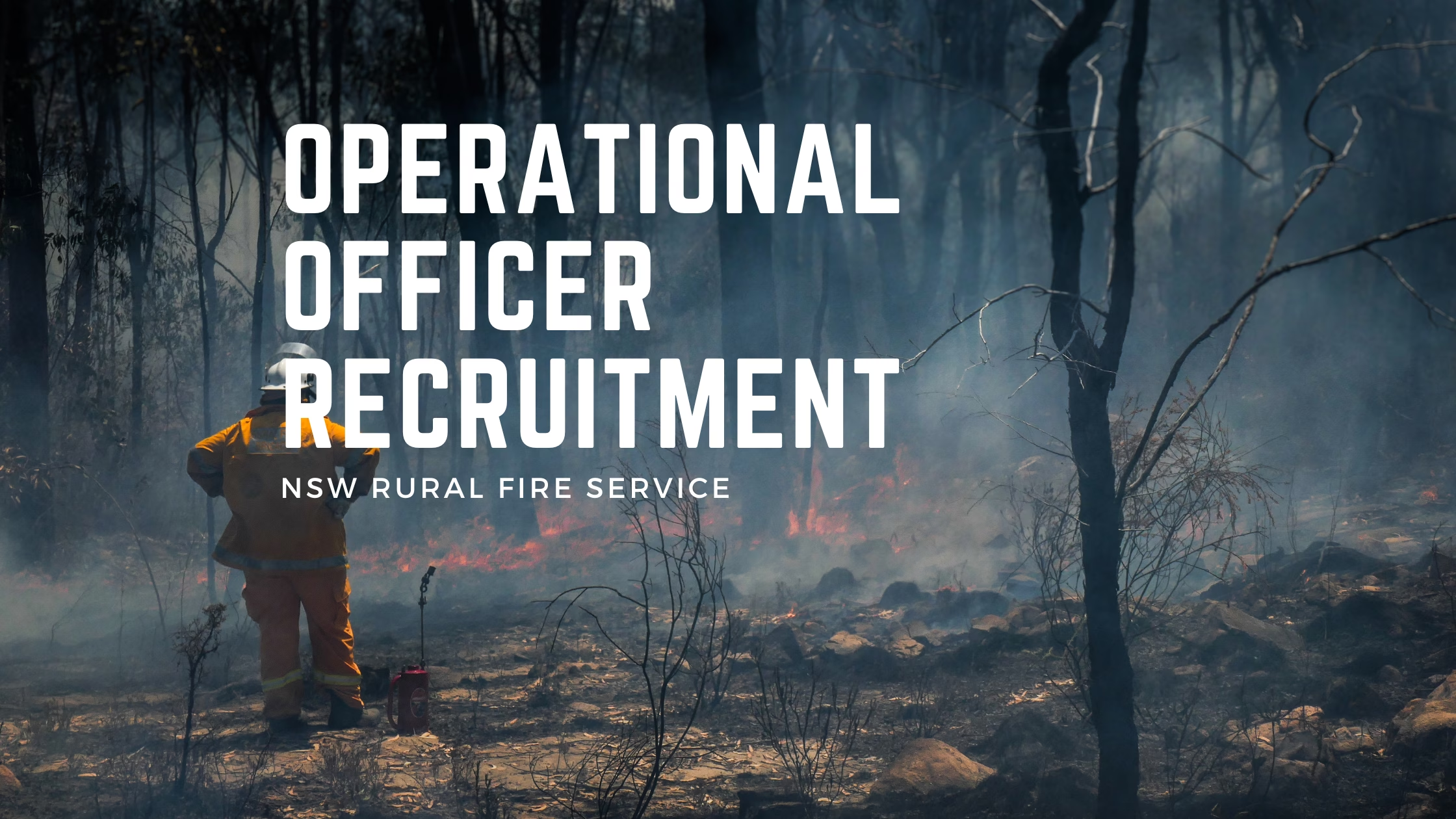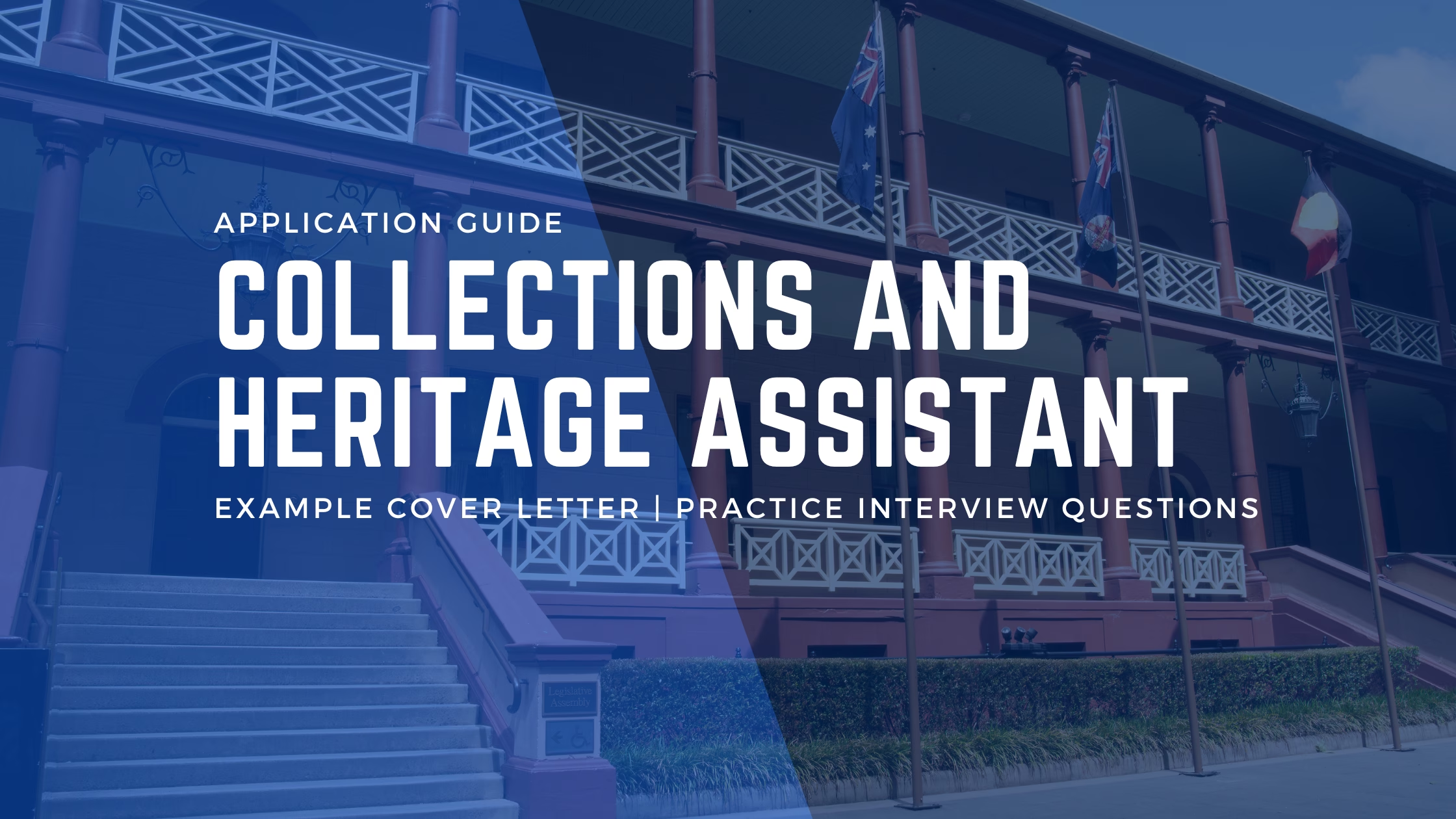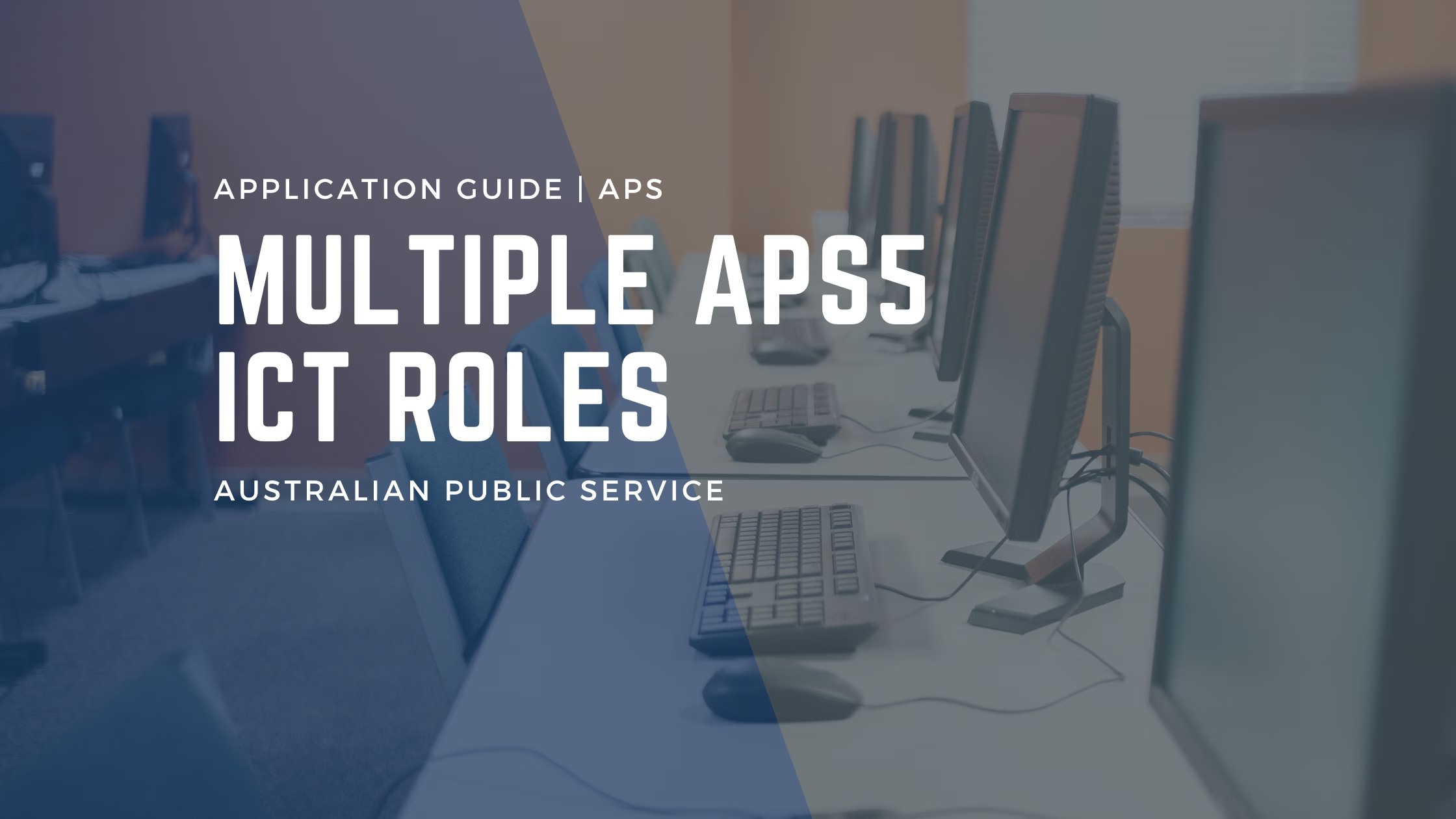An Operational Officer Level 1 position with the NSW Rural Fire Service (NSW RFS) offers you the chance to protect communities through bush fire management, mitigation, and emergency response. You’ll be on the front line of firefighting coordination, community education, and operational leadership, ensuring local areas remain prepared for potential threats. From volunteering experience to professional qualifications, this role leverages your passion for helping others and your drive to excel in high-stakes environments.
Do you want to turn your firefighting passion into a meaningful career? Becoming a NSW RFS Operational Officer Level 1 is a perfect way to gain hands-on experience, strengthen community ties, and forge a long-term path in emergency services jobs. Whether you have a background in volunteer firefighting or are eager to learn advanced skills, this role challenges and rewards you in equal measure.
If you’re new to public sector recruitment, check out this unofficial guide to NSW Public Sector recruitment for more insider tips and context.
Table of Contents
NSW RFS Operational Officer Level 1 Salary and Overview
| Position Title | Operational Officer Level 1 |
| Organisation/Entity | NSW Rural Fire Service (NSW RFS) |
| Job Location | Statewide (including regional opportunities) |
| Work Type | Full-Time (ongoing) |
| Base Pay | $83,305 – $91,213 p.a. (+ super and allowances) |
| Closing Date | 27/04/2025 |
About the OpO Program and a NSW RFS Career
In the Operational Officer Level 1 role, you’ll be on the front line of the NSW Rural Fire Service (NSW RFS)—the state’s lead combat agency for bush fire management and response. As part of a team deeply committed to community safety, volunteer engagement, and efficient incident coordination, you’ll help deliver critical emergency services that protect people, property, and the environment across New South Wales.
The NSW RFS is the world’s largest volunteer firefighting organisation, with over 70,000 volunteers and more than 2,000 brigades statewide. For over a century, it has been a cornerstone of the state’s emergency services, responding not only to bush fires but also to structure fires, motor vehicle accidents, and severe weather events across rural fire districts. As an Operational Officer, you’ll work alongside both career staff and volunteers to plan and deliver fire mitigation strategies, lead community education programs, and respond to incidents in real time.
This role offers more than just frontline action—it’s a gateway to a long-term RFS career. Through ongoing training, professional development, and exposure to diverse operational contexts, you’ll build valuable skills in fireground leadership, risk assessment, and public sector coordination. As a member of the broader NSW Public Sector, your work here could also open doors to future opportunities in emergency management and government leadership roles across the state.
Challenges for NSW RFS Operational Officer Level 1
Taking on a role as an Operational Officer involves unique challenges. You’ll balance day-to-day preparation for bush fire risk with emergency incident response that demands composure under pressure. One moment you might be coordinating volunteer teams during a controlled burn; the next, you could be managing hazard complaints to ensure compliance with regulations.
Additionally, the role requires robust leadership and the ability to pivot quickly. Conditions on the ground can change rapidly, calling for strong adaptability and strategic thinking. Equally important is your capacity to deliver clear, accurate, and timely community safety information. While this is an entry-level government job, you’ll have tens or hundreds of volunteers looking to you for answers – sometimes in stressful situations.
If you’re aiming to build or advance a firefighting career, these challenges present excellent growth opportunities. Whether it’s conducting field operations or supporting other agencies, every day will deepen your understanding of emergency services jobs and the RFS’s integral role in protecting communities state-wide.
Why Operational Officer Level 1 Is a Great Opportunity
For anyone looking to kickstart or level up their RFS career, the Operational Officer Level 1 position offers a rare mix of hands-on fieldwork, technical training, and leadership development.
The NSW RFS invests heavily in its Operational Officer Program, including a 15-week, full-time training course at the State Training Academy in Dubbo. During this time, you’ll gain nationally recognised qualifications and be trained in the key skills needed to operate safely and effectively in the field. More importantly, you’ll get to put that training into practice straight away. Do well, and you’ll be well positioned for future progression into NSW RFS Operational Officer Level 2 and NSW RFS Operational Officer Level 3 roles—more senior roles with greater responsibility and higher pay.
I’ve seen first-hand how people from outside the RFS have come into the organisation through this program, and within 12 months progressed to OpO3 roles. That sort of career growth is real—and achievable.
But let’s focus on this opportunity first. As an Operational Officer Level 1, you’ll benefit from:
Structured Induction: The 15-week induction course at the NSW RFS Academy in Dubbo combines practical firefighting, risk management, and incident coordination skills—all in a real-world training environment supported by experienced RFS professionals.
Competitive Compensation: A base salary of $83,305 to $91,213 per year, plus 11.5% superannuation. Many roles also attract an Annualised Conditions Allowance (ACA) of up to 15%.
Talent Pool & Multiple Vacancies: This is a large-scale recruitment process to fill multiple Operational Officer positions. If you’re successful, you’ll either receive an offer straight away or be placed in a statewide Talent Pool—giving you a strong chance of landing a role within the next 18 months.
Rotational Opportunities: You’ll be exposed to a range of operational settings, from remote regional districts to fast-paced metropolitan zones. This is a great way to build your capability across different bush fire risk environments.
Application Requirements for NSW RFS Operational Officer Level 1
NSW RFS Application Process
As with all government jobs, you need to apply for this role online.
You will need to submit:
- A cover letter in PDF format, addressing how you meet the essential requirements of the role, outlining your suitability, and why you are interested in this opportunity
- A resume in PDF format, including two current/recent professional referees
- A copy of your qualifications and other relevant documentation as per the essential requirements of the role
For this role, there is no page limit on the cover letter. I recommend that you write a two page cover letter with a resume that is up to four pages.
It’s important to note that this role does not list specific target questions. Therefore, you won’t need to provide a separate targeted response. Instead, funnel your experiences and qualifications into your cover letter, ensuring you outline how you fulfil the essential requirements.
If this is your first time writing a government cover letter, click here to read how to write an effective cover letter for government jobs.
NSW RFS OpO1 Requirements
According to the job ad, you must demonstrate:
- RFS Advanced Firefighter (AF) qualification or equivalent.
- Certificate III in a relevant discipline or equivalent expertise.
- A current Driver Licence with the willingness and ability to travel.
- Operational Officer Medical Assessment (for external applicants) confirming you meet the required fitness level.
- During periods of heightened operational activity, the incumbent will be required to support operational management activities consistent with their skills and background.
- May be required to participate on an after-hours and/or on call roster.
During the selection process, you might be required to show that your existing qualifications meet RFS standards, or you may need to undertake additional development. This is part of the continuous learning environment that shapes an Operational Officer’s journey within the NSW RFS.
In your cover letter, you need to address the essential role requirements.
What to Include in Your Government Cover Letter
Even though there are no specific target questions, remember that your cover letter is a critical element in the recruitment process.
For NSW RFS recruitment, addressing the essential role requirements is key. Show how your RFS career aspirations align with the role’s qualifications and use the STAR structure (Situation, Task, Action, Result) illustrate your achievements.
Additionally, highlight any experience you’ve had in volunteer roles, operational coordination, or supporting an emergency incident. The more concrete examples you can provide, the easier it is for the selection panel to see your potential as an Operational Officer.
NSW RFS Operational Officer Application Checklist
| NSW RFS Recruitment Checklist | Completed? |
|---|---|
| Start your tailored cover letter using a free template: Cover Letter Templates | |
| Address essential requirements (Advanced Firefighter, Driver Licence, etc.) | |
| Get your cover letter reviewed (Cover Letter Review) – only $29 | |
| Update your resume to highlight relevant RFS or emergency services experience |
Remember, your cover letter is the first impression the panel gets. Ensuring it’s polished, meets the role’s essentials, and reflects your suitability for an Operational Officer position can significantly boost your chances of success. If you’re serious about landing this role, consider a professional review: It’s only $29 and can make a big difference.
Candidate Profile for RFS Operational Officer
Meet Jayson, a retail manager who has been a volunteer firefighter for the past five years. Having witnessed the profound impact of bush fire incidents on local communities, Jason is determined to transition into a full-time Operational Officer role with the NSW RFS. In his volunteer work, he has worked along-side RFS staff during incidents and hazard reduction burns.
Jayson has recently completed an Advanced Firefighter course through volunteering in the NSW RFS. Through his employment, Jayson has a Certificate III in front-line management.
NSW RFS Operational Officer Level 1 Example Cover Letter
Click here to download a free public sector cover letter template
Dear Hiring Manager,
For the past five years, I’ve served as a volunteer firefighter with the NSW Rural Fire Service. It’s a role that’s changed my life—shaping not only my perspective on community safety but also my long-term career aspirations. Having worked alongside RFS staff during both hazard reduction burns and emergency incidents, I’m now determined to transition into a full-time Operational Officer role, where I can make a lasting difference while continuing to grow professionally.
My motivation to apply comes from my experience managing a large-format retail store during the 2019 bushfire season. With thick smoke blanketing the region and several staff unable to attend work due to nearby fire activity, our store faced significant disruption. It was my responsibility to keep staff safe, maintain essential operations, and provide support to impacted team members—all while responding to fast-changing conditions.
I introduced flexible rosters with rotating shifts to ensure coverage, stayed in regular contact with affected staff, and worked closely with local emergency services to remain informed. I also implemented air quality precautions in-store and made sure my team and our customers were kept up to date. Despite the challenges, we remained open safely through a critical trading period, and the team pulled together under pressure. Staff later told me they felt genuinely supported—and that feedback meant a lot. It also showed me just how important calm, practical leadership is during times of crisis.
That experience sparked a deeper interest in emergency management. I had recently joined the NSW RFS as a volunteer, but this event solidified my commitment to stepping up and contributing more in that space.
I have recently completed the RFS Advanced Firefighter (AF) qualification, which I’ve actively applied during training deployments and live incidents. My volunteer experience has taught me how to operate in high-pressure field environments, support incident coordination, and collaborate across teams. I’m comfortable with bush fire mitigation practices and understand the broader role the RFS plays in community education and operational readiness.
Professionally, I have spent over a decade in the retail industry and currently manage a team of more than 15 staff. This experience has strengthened my communication, coordination, and leadership skills. I hold a Certificate III in Frontline Management, which I believe is highly relevant to the responsibilities of an Operational Officer.
I hold a current Driver Licence and am more than willing to travel across the state to support operational readiness. I understand the requirements of this role include an Operational Officer Medical Assessment. I am in excellent health and physically active, and I am prepared to complete any assessment to certify my fitness for the role.
I am also aware that the position may require on-call or after-hours support during high-risk periods. I welcome this aspect of the role. My time as a volunteer has taught me that bushfires don’t follow business hours—and I’m prepared to contribute wherever and whenever I’m needed most.
In short, I bring a combination of frontline fireground experience, team leadership, and real-world management skills. I am enthusiastic about the opportunity to join the NSW RFS in a permanent capacity and am committed to building a long-term career with the organisation.
Thank you for considering my application.
Sincerely,
Jayson [Last Name]
How To Use the STAR Technique for NSW RFS
The STAR Method stands for Situation, Task, Action, Result. It’s a structured way to demonstrate your past experiences in a manner that highlights your problem-solving skills, leadership ability, and capacity to handle the demands of emergency services jobs.
- Situation: Set the context by describing the scenario you faced.
- Task: Explain what you were trying to achieve, or the responsibility you were given.
- Action: Detail the steps you took to address the situation.
- Result: Outline the outcome or impact of your actions.
You can apply this approach throughout the entire NSW RFS OpO recruitment process outlined below. It’s particularly useful in your written application, and equally effective during assessment centres and interviews when demonstrating your experience and suitability for the role.
NSW RFS Operational Officer Recruitment Process
End-to-end, the NSW RFS recruitment process can take at least 13 weeks.
This is a bulk recruitment round seeking to fill multiple current and future job opportunities in the NSW RFS.
Here’s what to expect once you apply for an Operational Officer role with the NSW Rural Fire Service:
- Application, Screening & Longlisting (4 weeks)
- Screening & Shortlisting (2 weeks): First screening activities (e.g. video interview, scenario-based activity) & online cognitive assessments
- Medical Testing & Assessment Centre (4 weeks): Medical assessment, virtual assessment centre via Microsoft Teams with capability assessments and a behavioural interview
- Employment Checks (1 week): Nationally Coordinated Criminal History Check, Referee checks and service checks, Additional internal checks
- Placements (2 weeks): Placement decisions based on your location preferences
- Feedback: Candidates can request feedback on their performance
NSW RFS Operational Officer Video Interview
Once you’ve submitted your application, the NSW RFS will review it against the essential role requirements. If you meet these, you’ll likely progress to the next stage: initial screening.
As part of this, you’ll be invited to complete a one-way video interview. You’ll receive an email with a link and instructions, and you’ll typically have a few days to complete it. The interview is completed online—at a time and place that suits you.
Make sure you set aside dedicated time in a quiet, private space. You’ll be given a practice question to get comfortable with the format, followed by the real interview questions.
For each question, you’ll have 60 seconds to review it and then 2–3 minutes to record your response using your phone or laptop camera.
Many candidates find this experience unusual—talking to a camera at home without any real-time feedback can feel unnatural. To prepare, practise speaking out loud on your own. Rehearsing your responses ahead of time will help you speak with confidence and stay on track under time pressure.
NSW RFS Operational Officer Online Assessments
At this stage, you’ll also be asked to complete a set of online assessments. These are cognitive ability tests designed to measure your problem-solving, reasoning, and comprehension skills.
Don’t stress—these assessments are just one part of the overall process and are not usually the deciding factor in whether you move forward. That said, it’s a good idea to familiarise yourself with the format. You can find free practice tests online to help you prepare and build confidence.
It’s important to know that you’re not expected to answer every question. In fact, some tests are intentionally challenging and designed to see how you perform under time pressure. Stay calm, work methodically, and do your best—that’s all that’s expected.
If you pass this stage, you will move onto the assessment centre.
NSW RFS Operational Officer Assessment Centre
During the online assessment centre you’ll have a public sector interview, plus other assessments like a role play, presentation or other work task.
Prepare For Your NSW RFS Operational Officer Interview
Government job interviews will give you clear opportunities to tell specific examples of how you meet the capabilities for the role.
You should use the STAR method in your answers – Situation, Task, Action and Result.
Potential interview questions for an Operational Officer Level 1 might include:
- What was your motivation in applying for the role? What skills will you bring to the role?
- Tell us about a time you worked as part of a team to respond to a high-pressure situation. What was your role, and how did you contribute to the team’s success?
- Tell us about a time when miscommunication caused a problem in your workplace. What happened, and how did you resolve it?
For each question, give a strong answer by using the STAR method. If you want some examples, download the public sector interview questions and answers workbook. For this role, you need to address questions at both the Foundational and Intermediate level. You can get the foundational level workbook for just $1.
Get Ready To Apply For NSW RFS Operational Officer Level 1
If you’re ready to take the next step in your RFS career, click here to apply for the Operational Officer Level 1 position. This is your opportunity to contribute to the safety of communities across New South Wales and build a fulfilling future in emergency services jobs.
Before you submit your final application, don’t forget to have your cover letter reviewed for only $29. This small investment can significantly improve your chances of progressing in the recruitment process. Visit this link to learn more.
Another tip for success: download the NSW Public Sector interview questions and answers workbook to fine-tune your approach. The more prepared you are, the better you can show you’re the right fit for the NSW RFS.
Start your cover letter now – it is the most important part of your written application for NSW RFS jobs. Click here for a range of free and premium government cover letter resources.





